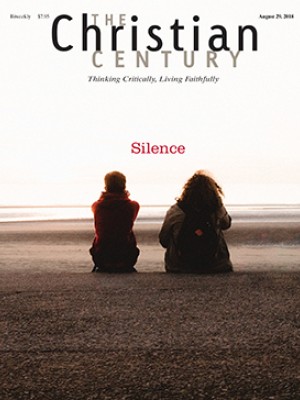September 23, Ordinary 25B (Mark 9:30-37)
Perhaps the disciples have been captivated by the kind of power embodied by Augustus and Herod.
Writers often get lost in their work. Typically, I go into my own world for a few hours each morning to focus on writing projects and sermon preparation. I work best in solitude, so I begin my writer’s day around 4:30 a.m.
The other morning my five-year-old grandson, who was spending the night with us, decided to get up early, too. When he came down the stairs, I was initially a bit annoyed, though I hid my feelings. He knew I was working, but after playing for a few minutes with his action figures, he asked, “Grandpa, can you play with me?” For a moment, I felt conflicted. I was on a writer’s roll, and the words were flowing. But then I looked into his eyes, and I knew that my brilliant insights could wait. So I entered the world of superheroes and sea creatures, reminded that the best theology is embodied in our everyday relationships. Greatness is measured by a child’s smile, not a felicitous phrase.
Read our latest issue or browse back issues.
In today’s reading, Jesus is once again giving a lesson in relational theology to his disciples. For Jesus, theology is contextual, embodied, and conversational. It emerges out of concrete life situations—including his observations of his own disciples, who have been arguing about which one is the greatest and most important among them. Once again, the disciples don’t get it. Jesus has just proclaimed that suffering and death lie ahead for him and are essential to his vocation as God’s savior. Seemingly oblivious to their teacher’s lesson, the disciples appear to believe that greatness involves being set apart from their peers in power and adulation.
Perhaps they have been captivated by images of power embodied in the rule of Augustus and Herod. These leaders privileged a form of power that controls, that separates leader from subjects. In their ruminations, the disciples no doubt ask: Isn’t divine greatness a matter of transcendent and awe-inspiring power? Shouldn’t authoritarian power be the pattern for relationships among Jesus’ followers as well?
In contrast to his disciples’ images of greatness, Jesus identifies greatness with service and empathy. Those who are great are willing to sacrifice for a greater good than their own self-interest. True greatness involves humility and the willingness to serve rather than be served. Surely this vision is at the heart of Paul’s hymn to kenotic leadership in Philippians 2. Having the mind of Christ inspires unity and empathy, not separation and apathy. Spiritual greatness is revealed in God’s participation in the maelstrom of human suffering.
According to legend, Francis of Assisi, raised in wealth and privilege, felt revulsion at the sight of lepers. One day he encountered a leper on the road and experienced his usual discomfort. This time, however, he remembered that the man with leprosy was one of God’s beloved children. He dismounted from his horse and gave the leper a coin and a kiss. The leper returned the favor. From then on, people with leprosy became a particular object of Francis’s ministry. No longer disfigured in his eyes, they were now, in the words of St. Teresa of Calcutta, “Christ in all his distressing disguises.” Francis learned that spiritual stature involves care for the least of these. Centuries later, Pope Francis stopped the popemobile to embrace and kiss another man suffering from a disfiguring disease. The world was moved by the authentic greatness revealed in welcoming the vulnerable.
St. Thérèse of Lisieux saw her mission in terms of doing ordinary acts with great love. Nowhere is this domestic spirituality more evident than in our personal and corporate care for children. In Jesus’ time, children were often seen as expendable. Yet Jesus embraces a child as a symbol of true greatness. A child—not Caesar—represents the heart of God.
American public policy neglects millions of children at home and abroad. We privilege gun rights over safe schools. We forget Howard Thurman’s observation that one of the most tragic effects of poverty is the loss of imagination among children. National leaders seem at peace with children of undocumented immigrants remaining separated from their parents; they see programs that promote children’s health and welfare as optional. Tax cuts for the wealthy trump care for vulnerable children.
The concern we middle-class American parents have for our own children is apparent in the rise of child-rearing books, after-school sports, and wall-to-wall activities to help them get ahead in the world. Yet we often neglect their deepest needs. When I pick up my grandchildren from school, it is commonplace for me to observe parents talking on their phones rather than emotionally engaging their child after a long day.
In today’s passage, Jesus asserts that greatness involves empathy and compassion. Greatness is embodied in caring for the most vulnerable members of our community, first of all by embracing them with love, hearing their stories, and responding to their cares. Our congregations do their best ministry with children when they make sure that the children of the church—and the children of the community—know that God loves them, that we love them, and that their lives matter and are full of possibility. In affirming our children, we are awakened to theophanies in our encounters with them.





